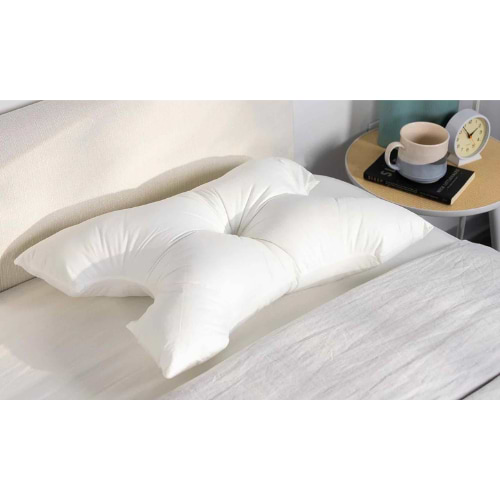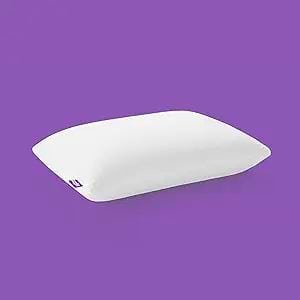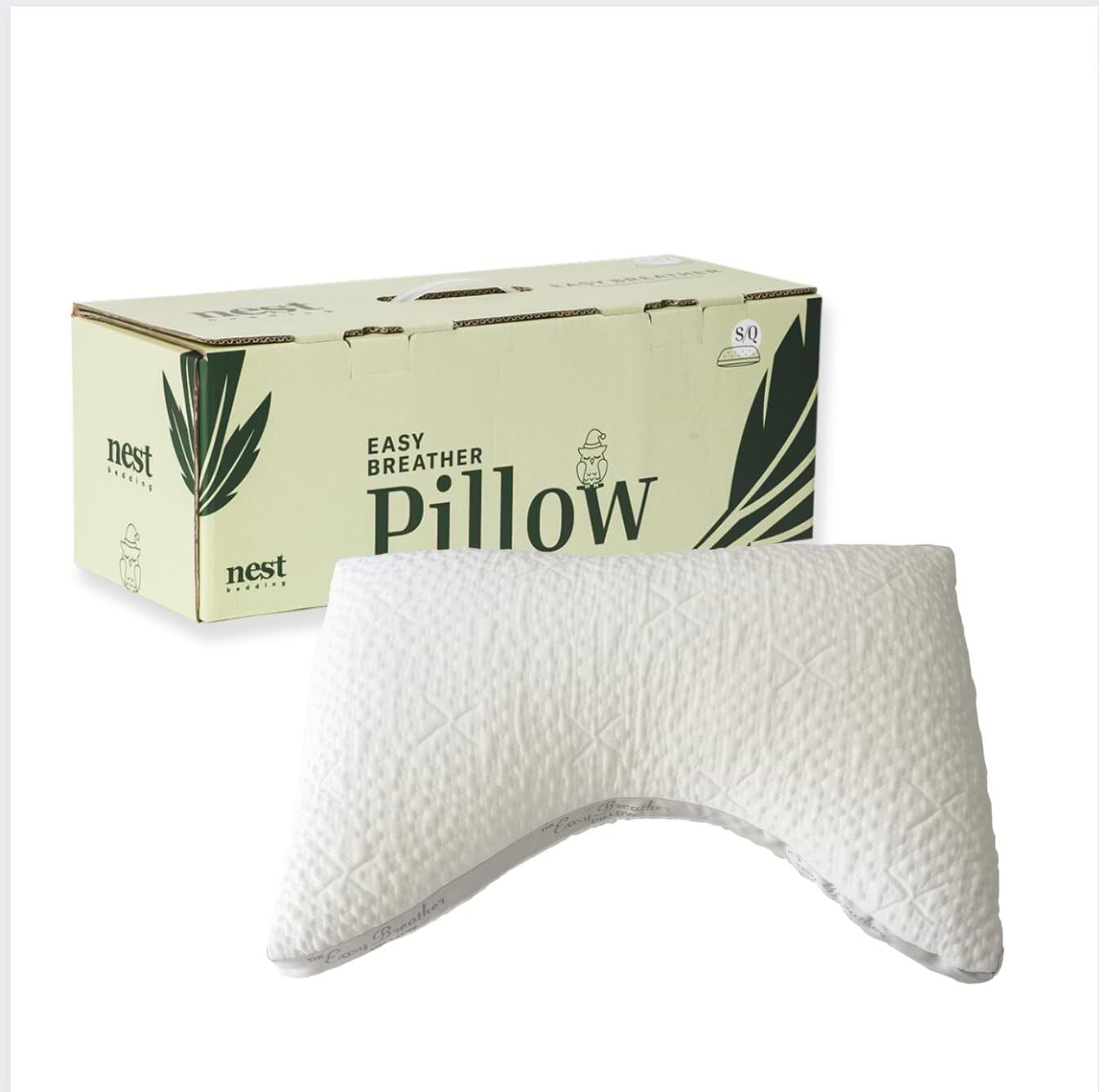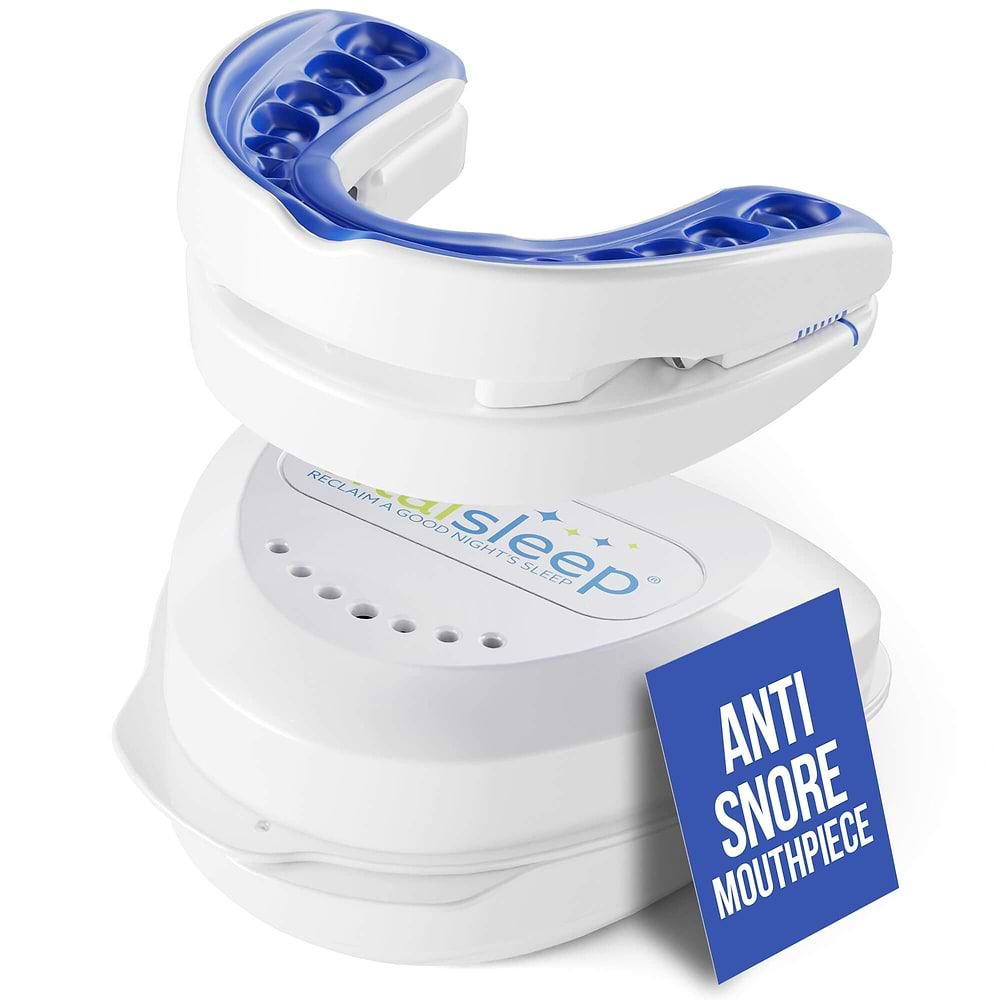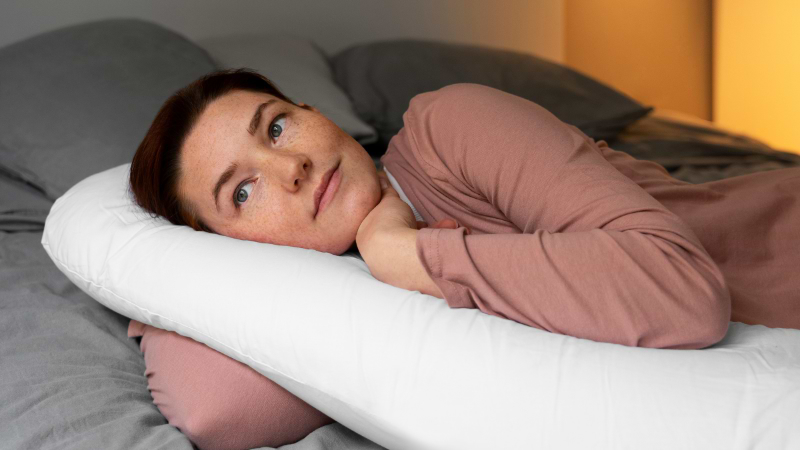
Top 5 Best Pillows for Snoring and Neck Pain (2025 Updated)
|
|
Time to read 11 min
|
|
Time to read 11 min
Snoring all night and waking up with a stiff and achy neck? You are not the only one, and probably your bed pillow is at fault. As someone helping people sleep better for years, I’ve learned that a good pillow can make a world of difference. In this guide, I will take you through why your pillow design is important, my top choices at different price ranges, and even clever alternatives. I have assisted thousands to sleep better, and now it’s your turn.
So, what is the best pillow for snoring and neck pain? Let's find out.
Table of contents
| Image | Product | |||
|---|---|---|---|---|
|
OUR TOP PICK

|
OUR TOP PICK |
Hero CPAP Pillow
|
|
Check Price |
|
VALUE OPTION

|
VALUE OPTION |
Borden Textile CPAP Pillow
|
|
Check Price |
|
HIGH-END OPTION
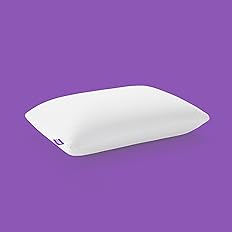
|
HIGH-END OPTION |
Purple Harmony Pillow
|
|
Check Price |
|
SIDE SLEEPER
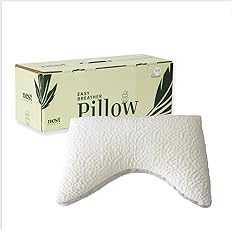
|
SIDE SLEEPER |
Nest Bedding Side Sleeper Pillow
|
|
Check Price |
|
CPAP ALTERNATIVE

|
CPAP ALTERNATIVE |
VitalSleep Mouthpiece
|
|
Check Price |
Key features:
Why it's our top pick:
It ticks most of the relevant boxes for both CPAP users and snorers. It aligns your spine and gives you neck support so that you can sleep more quietly.
Who it's best for:
Sleepers that require a serious neck support. Side and back sleepers.
Price range: ~$60.
Pros:
Cons:
Key features:
Why it's our budget pick:
It does the basics right (alignment and mask clearance) without much cost. Even on a shoestring budget, it can noticeably reduce snoring.
Who it's best for:
Side sleepers or those on a budget who use CPAP. Perfect for an anti snore pillow.
Price range: ~$39.
Pros:
Cons:
Key features:
Why it's worth the premium:
It is comfort oriented. Cooling gel and pressure-free latex keep your airway relaxed and neck pressure-free. It has constantly been at the top of my comfort tests. If budget is no issue then this is the winner.
Who it's best for:
Side and back sleepers who want a luxury pillow.
Price range: $199–$239 (depending on height).
Pros:
Cons:
Key features:
Why it's best for this category:
It fixes common side-sleeper problems. By filling the shoulder gap, it makes side sleeping much easier.
Who it's best for:
True side sleepers of any size, especially those with neck or shoulder pain in that position. Not ideal as a primary pillow for stomach sleepers.
Price range: ~$119 (30-night trial included).
Pros:
Cons:
Key features:
Why it's our alternative pick:
A pillow may not be the best solution to snoring at all times. This trusted anti-snoring device is able to avoid airway collapse whereas pillows only address it indirectly. I included it because it quite frequently stops snoring in situations where pillows can’t. According to sleep specialists, it can reliably prevent airway blockage.
Who it's best for: Heavy snorers or those with mild sleep apnea. Also great for travelers or CPAP-averse people who need a snoring solution.
Price range: ~$70 (60 days free trial).
Pros:
Cons:
A good pillow does more than just cushion your head. It helps keep your airway open and spine aligned. Side sleeping is known to make throat tissues less likely, and the right pillow reinforces this effect. By elevating and supporting your head and neck, a good pillow for snoring keeps the airway clear. A poorly chosen pillow can tilt your head back or let your chin drop, which causes snoring. Wedge pillows are often recommended to reduce snoring by elevating your head and upper body. In other words, the right pillow helps tackle a major cause of your snoring that is poor sleep posture.
Proper neck support also prevents morning pain. If your neck is kinked all night, you’ll wake up sore and tense muscles can make snoring even worse. A contour or viscoelastic foam pillow that follows your head/shoulder curve relieves this strain. In short, the right pillow keeps your airway clear and your spine neutral;. This makes it one of the simplest ways to snore less and wake up feeling great.
We combined expert advice, clinical research, and real-world testing. Our team includes sleep doctors and veteran testers. We reviewed studies and then tried each pillow ourselves. Our expert testers evaluated comfort, neck support, and even actual snoring volume for different sleep position and sizes.
We also consulted authoritative sources and spoke with sleep medicine professionals to make sure our criteria were sound. The end result? These five top picks. These are the pillows we’d personally trust to quiet snoring and soothe neck pain.
Your pillow height must maintain that the neck is in the right line with the spine. Side sleepers usually require more loft to support the shoulder gap whereas if you sleep on your back, you'd fare better on the medium loft. Adjustable fill pillows (such as the Layla Kapok or Nest Side Sleeper) allow you to change the fill to your preference of height.
Contoured or cervical design keeps the spine in position. Such pillows support your neck to decrease the load and support a neutral position. Ergonomic designs have the ability to tilt and lift the neck to promote healthier posturing and silent breathing.
It's all about the foam type. Memory foam pillow conforms to your head and exerts pressure off points and latex remains airy to make sure your airway is open. Medium-firm tends to be the best. It is not too binding, nor does it make your head drop too far.
Snoring can also be aggravated by sleeping hot. Seek out cooling fabrics such as gel-integrated memory foam or privately made aerated latex or Purple respirable grid. Bamboo, cotton, or Tencel covers can soak up the sweat and aid in circulating air at night.
The ideal pillow fits according to your sleeping style. Side-sleeper pillows are normally taller or have cutouts on the shoulders. Back sleepers enjoy center dips to support the neck, and stomach sleepers require low profile pillows.
Some pillows are built specifically to fight snoring. These often have contoured shapes or raised profiles that elevate the head and keep the airway open. If a pillow is marketed as “anti-snoring,” it usually has features to encourage better breathing posture.
Anti snoring pillows can be surprisingly effective for snorers, especially mild or positional cases. For example, clinical tests of memory-foam CPAP pillows have shown they can reduce snoring events and improve apnea measurements. In our experience, many users noticed significantly quieter breathing after switching to an ergonomic pillow and sleeping on their side. By aligning the neck and elevating the head just right, the airway stays more open, which often means fewer snore-triggered awakenings.
That said, a pillow isn’t a magic cure-all. If you have heavy snoring or moderate-to-severe obstructive sleep apnea, a pillow might only help partially. Think of a pillow as an easy part of a snoring solution, but for others it works best along with weight management, CPAP, or a mouthpiece like VitalSleep. Still, virtually everyone we tested reported better sleep with a supportive pillow. When your head and neck are supported, you often sleep deeper and wake up more refreshed with less neck pain.
Anti-snore pillows are usually the easiest snoring fix (non-invasive and simple). Wedge pillows (inclined foam ramps) elevate your upper body to open the airway, but they take up a lot of space. Mandibular devices (like VitalSleep) on the other hand move your jaw forward to keep the airway open. These can be very effective for heavy snorers, though they require getting used to. CPAP machines are the gold standard for sleep apnea. No pillow can replace CPAP in severe cases, but a supportive pillow can make mask therapy much more comfortable by reducing leaks and neck strain.
In short, upgrading your pillow is a great first step. A good pillow can often cut snoring on its own and will always improve comfort. A better pillow also promotes better sleep health. Even if you end up on CPAP or using a mouthguard, you’ll wake up in better alignment and with higher sleep quality thanks to the proper pillow.
Snoring and neck pain are no laughing matter. The good news is the right pillow can make a big dent. Whether it’s the Hero CPAP Pillow or one of the other top picks, finding the best pillow for snoring and neck pain can make each night a little quieter and each morning a little brighter. Still, remember that pillows alone don’t cure serious sleep apnea. Maintain a healthy lifestyle, sleep on your side, and follow any medical advice.
Sleep is personal, and so is your path to better rest. Take your time. Listen to your body. And know that simple head and neck support could be the turning point you’ve been waiting for. Here’s to deeper sleep and fewer snores. Happy snoozing!

